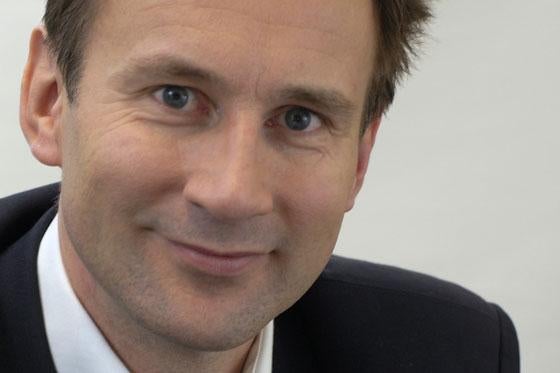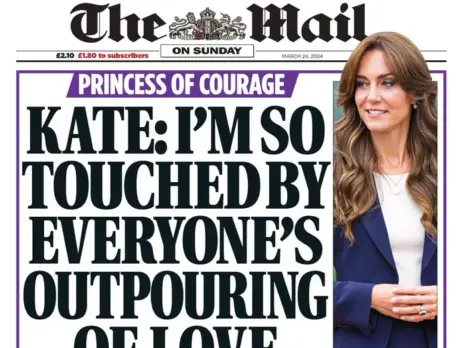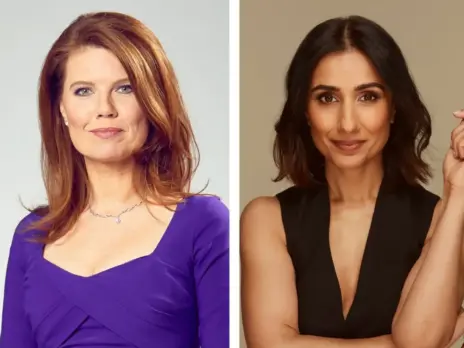
The independence of Sky News will be better protected than it is today under plans for it to be spun off as part of a deal to allow the controversial takeover of BSkyB by Rupert Murdoch’s News Corporation, Culture Secretary Jeremy Hunt said today.
In a statement to MPs Mr Hunt confirmed that he was minded to wave through the proposed takeover after News Corp disclosed its intention to hive off the news channel.
Under the proposal, shares in the new company would be distributed among existing BSkyB shareholders, with News Corp retaining a 39.1 per cent stake.
The move comes as News Corp seeks to avoid a full-blown inquiry into its plans to buy the 61 per cent of BSkyB it does not already own after Hunt said last month he planned to refer the deal to the Competition Commission.
Hunt told MPs: “Throughout this process I have been very aware of the potential controversy surrounding this merger.
“Nothing is more precious to me than the free and independent press for which this country is famous the world over.”
Hunt said he had sought and published independent advice, which he had then followed.
“The result is that, if this deal goes ahead, Sky News will be able to continue its high-quality output with greater protections for its operational and editorial independence than exist today.
“For those who have concerns about plurality of news provision I hope this will be a welcome step forward.”
Shadow culture secretary Ivan Lewis questioned why Hunt had changed his mind about referring the takeover to the Competition Commission, saying people would want reassurance that he “hasn’t put the perceived interests of his party and career ahead of the public interest”.
Hunt said of the proposals, which are subject to a consultation period: “The undertakings would ensure that Sky News is spun-off as an independent public limited company.
“The shares in that company would be distributed amongst the existing shareholders of BSkyB in line with their existing shareholdings.
“News Corp would therefore retain a 39.1% stake in the new company although it will not be allowed to increase this shareholding for 10 years without the permission of the Secretary of State.
“In other words, even if the proposed News Corp/Sky merger goes ahead News Corp’s shareholding in Sky News will remain the same as at present.”
News Corp is offering to fund the news channel for 10 years and agree a seven-year licensing agreement for it to use the Sky News name.
Hunt continued: “Unlike the board to which Sky News currently reports, the chairman would be required to be an independent editor.
“Unlike at present, the board would have a corporate governance and editorial committee to ensure compliance with the principles of editorial independence and integrity in news reporting.
“For the first time the requirement for the company to adhere to Ofcom’s Broadcasting Code would be enshrined in the new company’s articles of association.
“In short, the editorial independence of Sky News would be better protected than it would have been not only if Sky News had formed part of the buyout of Sky shares, but even than it is right now.”
Shadow culture secretary Lewis questioned the decision, which comes just days after former Tory chairman Lord Patten was selected as the Government’s preferred candidate to be chairman of the BBC Trust.
He said: “Imagine what they would have said if we had made this decision in this way in the same week as we had put a former Labour Party chairman in charge of the BBC.
“Until we get some straight answers to straight questions, doubts will persist.
“This process has exposed an arrogant Government, cavalier about its responsibility to be impartial and contemptuous of the importance of transparency in circumstances where there is already a high level of public cynicism.”
Lewis said Labour had yet to decide whether the Government’s decision was the right one and told MPs: “The decisions about this acquisition must be determined in the public interest via the due process laid down by Parliament – not through political deals.
“In the days ahead, I will engage with interested parties before deciding whether we believe referral to the Competition Commission remains the most appropriate course of action.
“This party will apply the public interest test without fear or prejudice.”
Lewis also hit out at the handling of the bid by ministers, saying that Business Secretary Vince Cable was stripped of his responsibilities for the media due to “poor judgment and lack of impartiality”, and that Mr Hunt was handed the duties “despite being on the record as saying he didn’t see a problem with News Corp purchasing BSkyB”.
He went on: “On December 23, the Prime Minister attended a private dinner with James Murdoch in the middle of a quasi-judicial process.”
Lewis asked Mr Hunt whether he had had any discussions about the takeover with David Cameron since December 23, adding: “And do you think it was right for the Prime Minister to attend this dinner in the middle of this process?”
Hunt told him: “The extraordinary thing about what you said today is the utter cowardice of a party that listens to a statement, criticises a process that it set up itself and then refuses to get off the fence and say whether it actually agrees or not with what I’ve done.
“Last time you criticised me for not following Ofcom’s advice. In fact I did follow Ofcom’s advice then and now.
“So do you agree with what Ofcom has said? And if you’re not prepared to say whether you agree or disagree with what Ofcom has said, then no-one will take any of the criticisms you said the remotest seriously.”
Lewis asked a number of questions about News Corp’s decision to float off Sky News as a listed company.
He asked Hunt who would appoint the new Sky News board and whether the chair would be independent.
“Will Sky News be solely dependent on News Corp for finance over the next decade?” he asked. “Who will hire and fire Sky News’ editorial staff?”
Lewis also asked about News Corp’s approach to “undertakings given in the past” following the purchase of the Times and Sunday Times in 1981 and the Wall Street Journal in 2007.
“Can you confirm that broadcasting news impartiality rules will remain in place?” he asked.
“Why have you not consulted UK media organisations opposed to this acquisition during the past month?”
Hunt said Lewis had displayed “blind ignorance” of a process that his own government set up under the Enterprise Act 2002.
“You talked about putting the interests of party first,” Hunt said.
“Now, apart from asking you why it was that your former News International-employed Labour Party director of communications sent an email round to all of the Labour Party front bench asking them to back off from criticisms of this deal, let me just say this.
“I have been absolutely scrupulous in making sure that there were independent views commissioned and expressed and published at every stage of this process, precisely because I wanted to reassure the public that this was not being taken on the basis of party interest.”
Turning to Lewis’s questions, Hunt confirmed that the chair of the new company would be “completely independent”.
He said 65 per cent of the new company’s revenue would be dependent on Sky but any board of directors would be “likely to want to reduce that dependence over a period of time”.
The independent board would have the power to hire and fire editorial staff, he added.
“I gently point out that the big difference with what happened with the Times and the Sunday Times is that we have an independent company, floated independently on the stock market with an independent board and an independent chairman – that is a huge difference,” he said.
On impartiality rules, Hunt said he believed they should stay in place but, for the first time, the new firm would have to respect the Broadcasting Code which includes those impartiality requirements.
He said he had launched a 17-day consultation in which media organisations would be asked their opinions on the bid.
“This is a consultation, I will listen to what they say,” he said.
Email pged@pressgazette.co.uk to point out mistakes, provide story tips or send in a letter for publication on our "Letters Page" blog







